The Point was not on point. Two girls, raped and sexually molested, were in the pages of the newspaper. This breach was gross – ethically and legally. The country was shocked. The doubting Thomases of the new-found press freedom shout from mountain tops: untrained and uneducatedbunch they are butka journaliso butongo lo. Those sitting on the fence have jumped on their side. Supporters of the press are reconsidering their position: well, I’m a believer of press freedom but how could they do that. Oh, no.
A born again: welcome to Africa’s newest democracy. Here, to err wasn’t journalism. Now it is. This time, the culprit is an unlikely villain.Dawda Faye, the file man. Seasoned.A specialist. Get to know him better than that: he carries more than two decades of experience in reporting courts in the file he carries. Enviably professional, he arrives at the court before the cleaners. His reporting style is simple and matter-of-factly: just write as the court says or does. No colouring, just a bit of sand-papering. He has authored two books being used in schools, including University of The Gambia. He has mentored the country’s finest journalists. The editor, Bekai Njie, belongs to a prestigious club of few journalists with a degree in the practice. The newspaper, The Point, is the country’s first of its kind and continues to lead.
When bad story comes from good journalists, what do you call that?
Is it a honeymoon or a democratic culture?
In spite of their professional pedigree, The Point and Dawda are not innocent. When you publish errors like this: ‘…car raising’, instead of ‘car racing’ in screaming headlines, that’s horrible. When you write a headline ‘Nigerian rapes…’, instead of a ‘man rapes’, that’s called sensational journalism. When you publish the names of underage sex abuse victims and describe the graphic nature of it, that’s reckless.
The Point is not alone. The Voice often makes mistakes, of grammar and facts. The Daily News and Foroyaa could do way better than they’re currently doing in cleaning up the copy. The Standard run corrections more times than acceptable from that paper. Sarjo Barrow and Pa Ndery Touray of Star FM are pushing the boundaries of objectivity in journalism.
No dispute here. There’s freedom and boom in the media after the dictatorship. Where there was only one television outlet, now there are several. Where online media used to operate from abroad, now greater number of them are on the ground and produce more verifiable editorial content. Where music used to dominate the air, now there’s information overload in radio broadcasts. Where laws dangle over heads, now they are asleep. Where mistakes are few and costly, now there are many and excusable.
Fortunately, the honeymoon may not be over, after all. Or, is it really a honeymoon or a genuine, lasting embrace of the values of press freedom? Time will tell. For now though, abominable mistakes are being accepted as part of the noise that comes with democracy.
Dawda and The Point could have been charged to court. If convicted, jail is likely. They haven’t and are unlikely to face criminal indictment. Instead, on social media and through official requests, the GPU has been called upon to act; and whip The Point on the Front Page. Press freedom cannot be any better when people recognise and appreciate the democratic norm that the press should regulate the press through moral sanctions. The government should stay far off.
The struggle against government regulation
The Gambia media had stood against repeated attempts by previous governments to regulate the media.The price paid was expensive. The question has never been whether the press should be regulated.Rather, it has been how the press should or ought to be regulated. There were deep divisions. There still are those divisions, although smaller. It is not only a matter of media vs government. It is also about conflicting views within media and within government.
In 2016, the GPU made an important first step towards establishing ethical standards by launching an industry-wide code of conduct. The code provides guidelines and ethical standards for all categories of news media journalists – print, radio, television and online. In 2017, the Union embarked on a nation-wide campaign – each media practitioner a copy – to popularise the code.
What has been missing is a body that will monitor compliance and enforcement of the code. A best practice visit in Ghana followed. A good amount of literature has been reviewed and more than ten experts consulted, from Norway to South Africa, from Ghana to Kenya, from Denmark to Zimbabwe, from UK to Australia. Consultations continue. From last week when the media reforms committee – a technical group co-chaired by GPU and Ministry of Information – scrutinised the founding documents, to this week when journalists, media owners and the members of the public will debate the issues, the Gambian model being developed will take into account international standards and Gambian characteristics.
Media Council of The Gambia
Few things are becoming clearer about what is proposed to be called Media Council of The Gambia. The Council, with a guaranteed independence, would be a non-statutory body, but it would be recognised by the state and will have legal underpinnings. Besides having a multi-stakeholder representation,it would regulate content across all media platforms – print, online, radio and television, and also state and private.
The fears about this model of media self-regulation are a matter of genuine concern. Would the Media Council have a tooth to bite without a legal framework and without a court-like order? What happens if an offending journalist refuses to comply with either the decision or the process?
Self-regulation works. It is the most prominent and common media regulation system in the world.The system is fair, fast and free. But one thing is clear: it is up to the media to make it work. The how of it is obvious: total submission to upholding the standards the media set for itself.
Journalists are no gods
Until few weeks ago, the power of moral sanctions has not been properly tested.Then, The Point newspaper published the names of sex abuse victims. Such media conduct is not only immoral, it is also seems to have violated a number of laws, including the Children’s Act, the Women’s Act and Sexual Offences Act.
However, The Pointhas refused calls to correct the story or apologise in an appropriate manner. It has also refused legitimate calls to pull down the story from its website. The Union’s press release, condemning the conduct, was trashed in the trash bin by most major media outlets.Some journalists even went further to call out the Union for publishing the condemnation. To them, the right thing to do was for the Union to visit the offices of The Point, and plead with them to put up an apology.
Journalists are no gods.The media make mistakes. Accountability of the media is an important hallmark of responsible journalism. The ethics of the profession require a journalist to swiftly correct a wrong-doing and apologise in an appropriate manner.
A Council in honour of Deyda Hydara
The Point’s refusal to appropriately apologise and swiftly pull down the story, and the refusal of some media outlets to publish the condemnation appear to send a clear message that the Gambia media has coalesced to show solidarity with an unethical conduct that is criminally indictable, rather than defend professional standards.
However, even as The Gambia media failed this first test, that doesn’t meanthat,there shouldn’t be a second chanceor a third chance or more chances. As we nurture our democracy, we are constantly reminded that we rather err on the side of democracy than err on the side of repression. But ultimately, the media cannot eat its cake and have it. The media have to make a choice: to embrace self-regulation or invite the state to come in with force.
In a democracy, where press freedom is valued, the choice is never mistaken. On December 23, therefore, in marking the 14thanniversary of the murder of Deyda Hydara, the GPU would launch the Media Council of The Gambia. There cannot be a more fitting way of honouring a former GPU president who paid the highest price in the defence of press freedom. Deyda stood strongly against the former government’s regulation of the media. Now he welcomes in his sleep the baby he anticipated. May His Soul Continue to Rest in Peace!
The author, Saikou Jammeh, is the Secretary General of The Gambia Press Union.

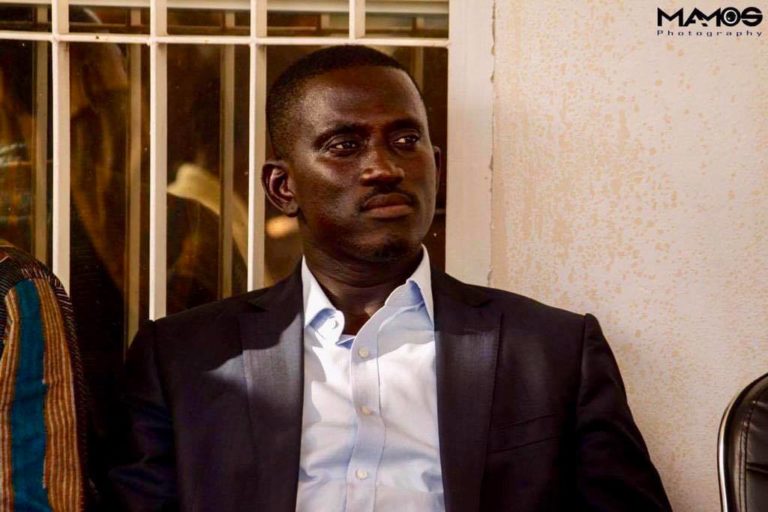
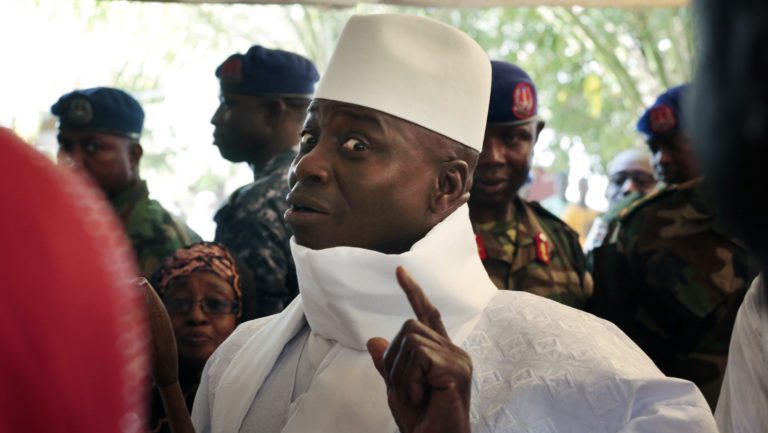
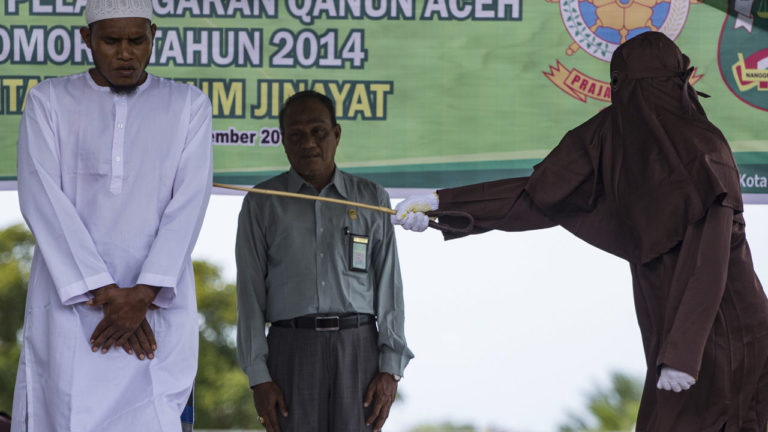
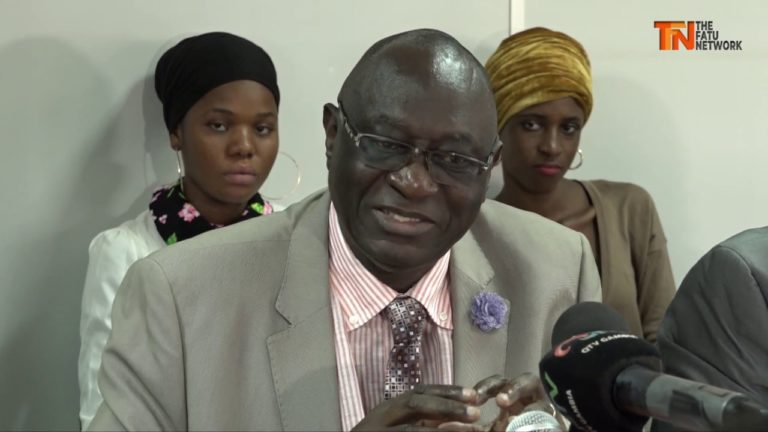
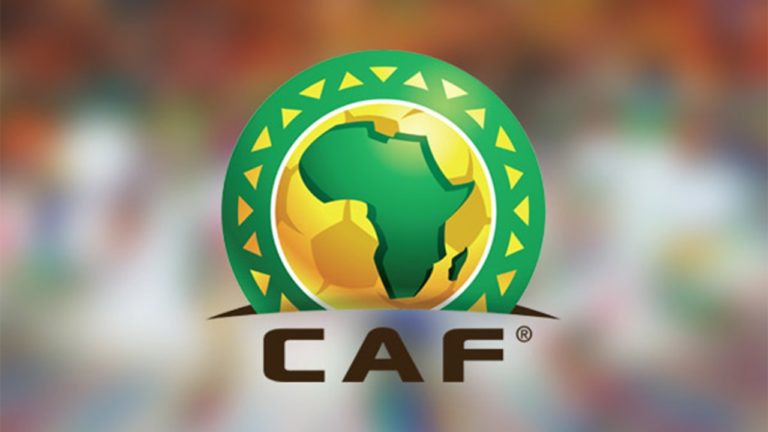
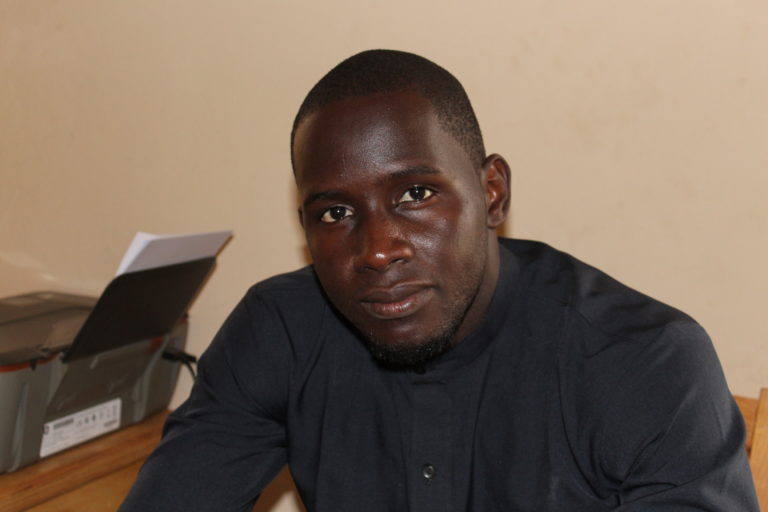



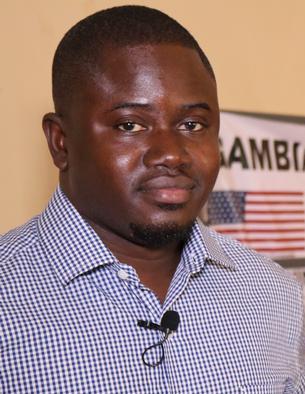
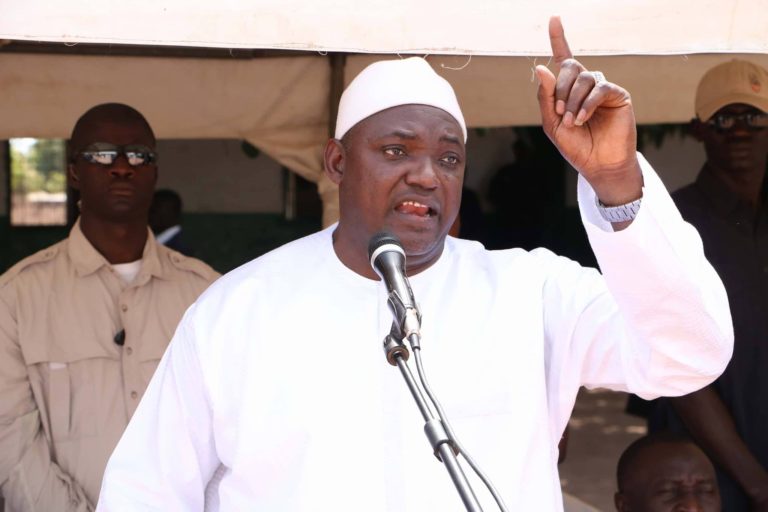





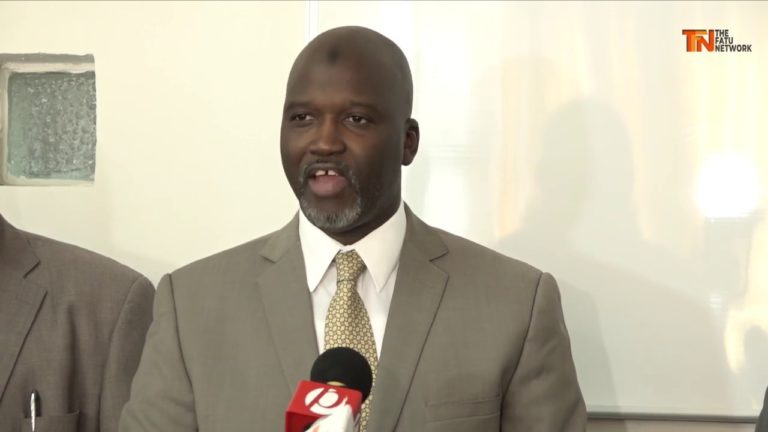

On the Festive Season and Related Matters: Epistle to my Bishop
I salute you, Most Reverend, Catholic Bishop of Banjul: Grace and Peace to you!
Indeed I remain excited and jubilant about your ordination as the first Gambian Catholic Bishop. I just cannot stop celebrating this great feat especially for the fact that you are indeed my brother from Lamin and my senior at our alma mater St. Peter’s Technical High School.
My prayer for you remains long life, Divine guidance and protection. For what else could I pray for you? My good old mother always taught me in Mandinka proverb that you don’t pray for an elephant to be big because it is the nature of elephants to be huge, you only pray for the elephant to live long. So may you live long our Holy Bishop for success shall be yours.
The purpose of this epistle is to send my season’s greetings to you and your flock. Given the subtle attacks of the secular fundamentalists on our common Abrahamic religious practices I shall not just call this “season’s greetings”. Like I proclaimed in a recent Facebook post “forget about happy #holidays; it’s #Christmas that we are celebrating!” Indeed Sheikh Hamza Yusuf is right: “the world’s 1.8 billion Muslims are members of the Abrahamic family and the Quran commands us to respect the other family members, to protect them when threatened, and to honour them when safe. We have a shared faith in all of the biblical prophets, the Messianic reality of Jesus, and his virgin birth, not to mention a belief in the afterlife of final judgement with its rewards and retributions.”
So ours is a great family numbering in the billions and spread all over the world. And I do hope and pray that those who do not want to recognise or appreciate religion or religious symbolism, would at least be honest and fair enough to live their professed democratic ethos to “live and let live”.
Most Reverend, my dear senior brother, in view of the foregoing premises, shall we not, as Muslims and Christians, come together on a common platform to create a rampart against the current onslaught of the secular fundamentalists against religion and religious practice. They may be coming with a thousand and one subterfuges and other beguiling decoys but the true aim of the secularists is to gradually but effectively remove religion from our lives. Therefore, it is our collective duty to protect the heritage of the arch-prophet Abraham. The battle may be tough but victory shall be for us because verily the Light of God will always prevail over the forces of darkness.
And as they read this epistle that is addressed to you, and not them, their counter arguments would be the occasional abuses of religion and inter-faith imbroglios; forgetting that the greatest atrocities in human history were committed not in the name of religion but irreligious people with secular motivations occasionally dressed in religious robes. And should they bring the argument of inter-faith conflagrations, then shall we not show them the inspiring example of The Gambia. Forget about the little blemish caused by our former President’s unilateral declaration of The Gambia as an Islamic Republic; this was his personal ambition and as for his motivations, even his closest ministers and personal friends I spoke to on this matter had no clue as to what was going on in the man’s head at the time. But if you look back at the aftermath of that declaration and what preceded it, any honest human being would admit that there was no real change in the status quo. Gambians seem to be hardwired for religious tolerance and peaceful coexistence based on mutual respect.
So The Gambia was, and remains, an oasis of religious tolerance and harmony in the desert of bigotry and intolerance that is our modern world.
My prayer is that we as a nation do not take our inter-faith harmony for granted but to work on it and cultivate it so that it doesn’t atrophy but grows and blooms for harvest and export world-wide.
In parting, Most Reverend, I wish to let you know that I have been revising my Bible Knowledge notes from High school of late. (And God bless Father David Jimoh Jarju who taught me Bible studies at O Levels in the 90s). I am deeply fascinated with the story of the Lord’s Anointed in the first book of Samuel. The same story deeply engages my mind when I read the Quranic version of it towards the end of the second chapter, Surah Baqarah, verses 246-252.
Indeed Allah is right as He asserts at the end of His narration of our common heritage, the story of Prophet Joseph, in the 12th Chapter of the Quran: “There was certainly in their stories a lesson for those of understanding. Never was the Qur’an a narration invented, but a confirmation of what was before it and a detailed explanation of all things and guidance and mercy for a people who believe.”
In the story of King Saul, I see a great similitude with the current happenings in our own promised land, the Smiling Coast. Am I wrong, Monsignor?
While looking forward to a response from you, once again, I wish you a Merry Christmas and Happy New Year .
Momodou Sabally
The Gambia’s Pen